Princeton Studies on the Near East31
-
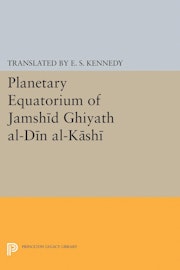
Instruments for solving astronomical problems are part of a continuous tradition reaching far back through the Middle Ages into the Hellenistic world. Dr. Kennedy expands the history of analog computers by providing an account of an...
-
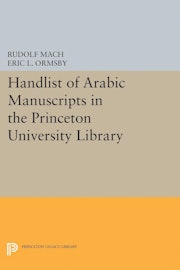
This catalogue describes over 2,000 Arabic manuscripts acquired by the Princeton University Library since the 1950s, providing information on an important collection of Arabic works, many of which were previously unknown or...
-
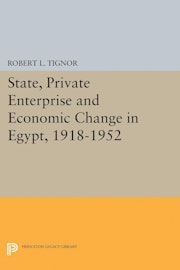
This study of Egyptian efforts to diversify the country's economy between the end of World War 1 and the Nasser coup d'etat of 1952 focuses on the nascent bourgeoisie and the relationships of its segments to one another.
Originally... -
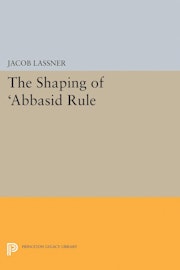
In order to understand the transition between the revolutionary movement that propelled the Abbasids to power and the imperial government that later took root, Jacob Lassner studies those elements that served to shape the political...
-
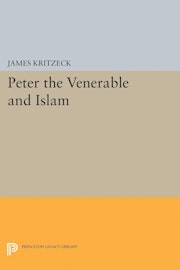
For over four centuries the principal source of Christian European knowledge of Islam stemmed from a project sponsored by Peter the Venerable, ninth abbot of Cluny, in 1142. This consisted of Latin translations of five Arabic works...
-
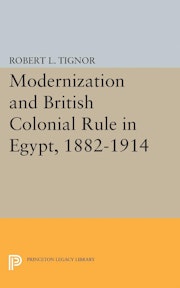
In occupied Egypt, British governmental programs were closely related to England's needs as an imperial power since Egypt was occupied because of its strategic position along the route to India. British presence there, however...
-
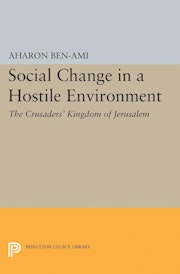
Through a comprehensive case study of the twelfth-century Crusaders' Kingdom of Jerusalem, the author shows how a changing international system encourages or retards the development of social structures, thereby relating the...
-
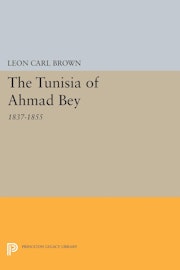
Under the energetic but confused prodding of the activist ruler Ahmad Bey, Tunisia made its first effort to institute European-inspired political and military reforms. L. Carl Brown's book on the reign of Ahmad Bey is thus a case study...
-
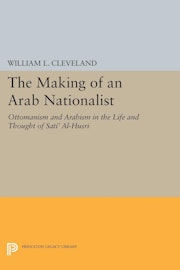
A loyal servant of the Ottoman Empire in his early career, Sati' al-Husri (1880-1968) became one of Arab nationalism's most articulate and influential spokesmen. His shift from Ottomanism, based on religion and the multi-national...
-
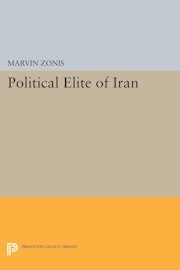
In interviews with 170 politically active Iranians, the author reveals that politics in Iran are based on interpersonal relationships marked by insecurity, cynicism, and mistrust. He then assesses the significance of these...
-
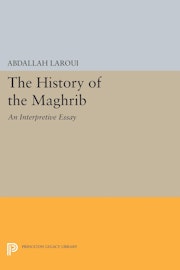
This survey of North African history challenges both conventional attitudes toward North Africa and previously published histories written from the point of view of Western scholarship. The book aims, in Professor Laroui's words, "to...
-
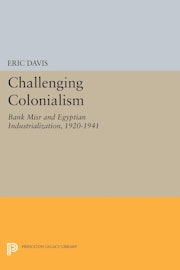
Eric Davis challenges classic theories of dependency and imperialism and explains the history of the Bank Misr by interrelating world market forces, Egyptian class structure, and the Egyptian nationalist movement and state...
-
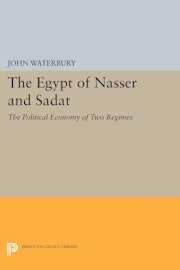
A balance sheet of thirty years of revolutionary experiment, this work is a comprehensive analysis of the failure of the socialist transformation of Egypt during the regimes of Nasser and Sadat. Testing recent theories of the nature of...
-
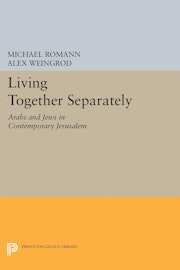
Much has been written about the religious and political conflicts of contemporary Jerusalem--and about the harsh realities of the intifada. But while analysts probe the violence in the "reunited city," its residents must go about their...
-
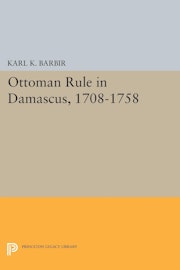
On the basis of new evidence from the Ottoman archives in Istanbul, Karl Barbir challenges the current interpretation of Ottoman rule in Damascus during the eighteenth century. He argues that the prevailing themes of decline and...
-
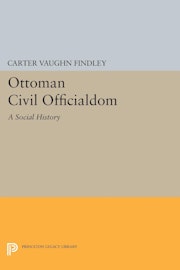
In this sequel to his highly acclaimed Bureaucratic Reform in the Ottoman Empire, Carter Findley shifts focus from the organizational aspects of administrative reform and development to the officials themselves. A study in social...
-

Why did Syrian political life continue to be dominated by a particular urban elite even after the dramatic changes following the end of four hundred years of Ottoman rule and the imposition of French control? Philip Khoury's...
-
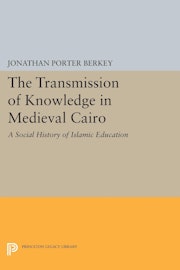
In rich detail Jonathan Berkey interprets the social and cultural consequences of Islam's regard for knowledge, showing how education in the Middle Ages played a central part in the religious experience of nearly all Muslims. Focusing...
-
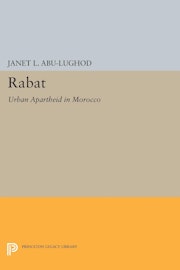
Making provocative use of the term apartheid," Janet Abu-Lughod argues that French colonial policies in Moroccan cities effectively segregated Moroccans from Europeans. Focusing on Rabat and drawing upon unpublished data from the 1971...
-
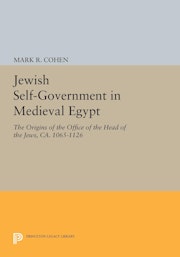
Under three successive Islamic dynasties--the Fatimids, the Ayyubids, and the Mamluks--the Egyptian Office of the Head of the Jews (also known as the Nagid) became the most powerful representative of medieval Jewish autonomy in the...
-
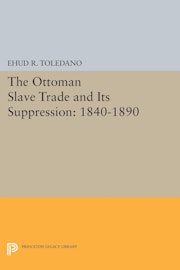
This book is a historical account of the slave trading system of the Ottoman Empire in the second half of the nineteenth century and of the attempts, which were eventually successful, to suppress it.
Originally published in 1983. -
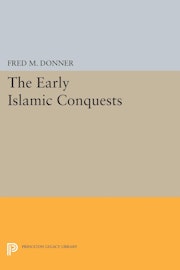
In this contribution to the ongoing debate on the nature and causes of the Islamic conquests in Syria and Iraq during the sixth and seventh centuries, Fred Donner argues for a necessary distinction between the causes of the conquests...
-
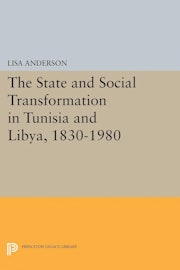
The book traces growing state intervention in the rural areas of Tunisia and Libya in the middle 1800s and the diverging development of the two countries during the period of European rule. State formation accelerated in Tunisia under...
-
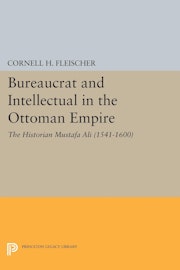
Mustafa Ali was the foremost historian of the sixteenth-century Ottoman Empire. Most modern scholars of the Ottoman period have focused on economic and institutional issues, but this study uses Ali and his works as the basis for...
-
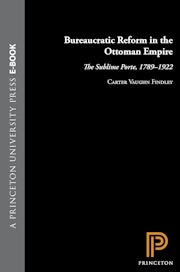
From the author's preface: Sublime Porte--there must be few terms more redolent, even today, of the fascination that the Islamic Middle East has long exercised over Western imaginations. Yet there must also be few Western minds that now...
-
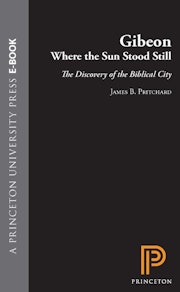
This first book-length presentation of the results of our excavations at el-Jib has been written for the general reader who is concerned with the contribution that archaeology has made to the biblical history of the site.... In telling...
-
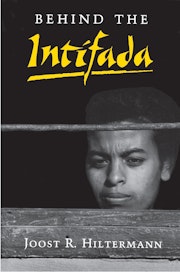
Before the intifada began, Joost Hiltermann had already looked at local organizations in the Israeli-occupied West Bank and Gaza Strip and seen there the main elements that would eventually be used to mobilize the Palestinian masses. In...
-
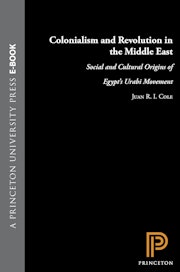
In this book Juan R. I. Cole challenges traditional elite-centered conceptions of the conflict that led to the British occupation of Egypt in September 1882. For a year before the British intervened, Egypt's viceregal government and the...
-
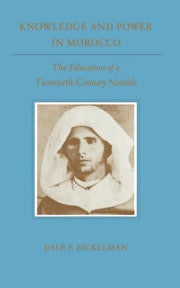
This intensive social biography of a rural Moroccan judge discusses Islamic education, the concept of knowledge it embodies, and its communication from the early years of colonial rule in twentieth-century Morocco to the present. The...
-
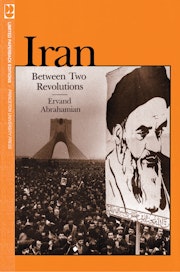
Emphasizing the interaction between political organizations and social forces, Ervand Abrahamian discusses Iranian society and politics during the period between the Constitutional Revolution of 1905-1909 and the Islamic Revolution of...
-
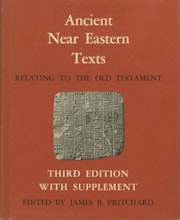
This anthology brought together the most important historical, legal, mythological, liturgical, and secular texts of the ancient Near East, with the purpose of providing a rich contextual base for understanding the people, cultures, and...